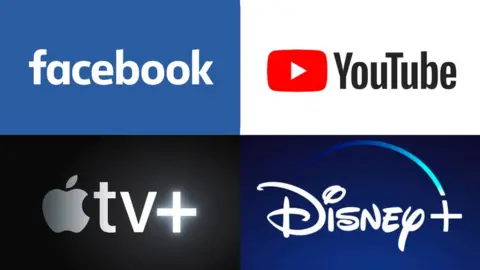Coronavirus: Facebook cuts video quality to ease net strain
 BBC
BBCFacebook is the latest platform to reduce its video quality in Europe, to reduce demand on internet service providers.
Demand for streaming has increased while large parts of Europe are self-isolating at home due to the coronavirus outbreak.
The change means each video will use less data, but viewers are unlikely to see a major change in picture quality.
Amazon, Apple TV+, Disney+ and Netflix have also announced similar measures.
Facebook's change will apply to both its main service and Instagram.
Video quality
Several factors influence how much data is used when streaming a video online.
One of them is video resolution. High-definition (HD) and ultra-high definition 4K videos use more data than standard-definition videos.
Another factor is bitrate, which is the amount of data streamed per second. Videos with a higher bitrate tend to look less "blocky" or pixelated - especially if there is a lot of motion in a scene - but use more data.
Amazon's Prime Video, Apple TV+ and Netflix have all lowered their streaming bitrates but left their range of resolutions unaltered.
Netflix said its European viewers would use 25% less data when watching films as a consequence.
Disney+ said it would have slightly lower bitrates in Europe when the service launches on Tuesday in the UK, Ireland, Austria, Germany, Italy, Spain and Switzerland.
However, it said it had delayed its French launch until 7 April at the request of the country's government.
By contrast, Google's YouTube said it would switch viewers in Europe to its standard-definition (480p) video mode by default. However, viewers will still be able to switch back to high-definition if they wish.
The change will roll out gradually over the next few days.
The BBC said it would no longer trial programmes in ultra-high definition 4K on BBC iPlayer as a "precautionary measure".
"We will automatically reduce the data used if networks are congested," the BBC added in a statement.
'Plenty of room'
Netflix was the first streaming service to announce it was lowering its video bitrate, after meeting with European officials.
But in the UK, telecoms giant BT said it had "plenty of headroom" on its network.
It said there had been a surge in daytime internet use as more people worked from home.
But it added that data-use was far lower than previously recorded heights, which the network had been able to handle.